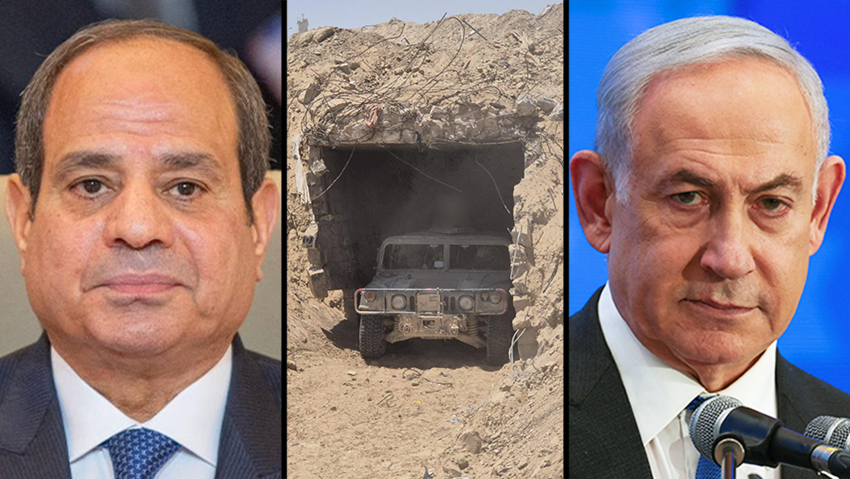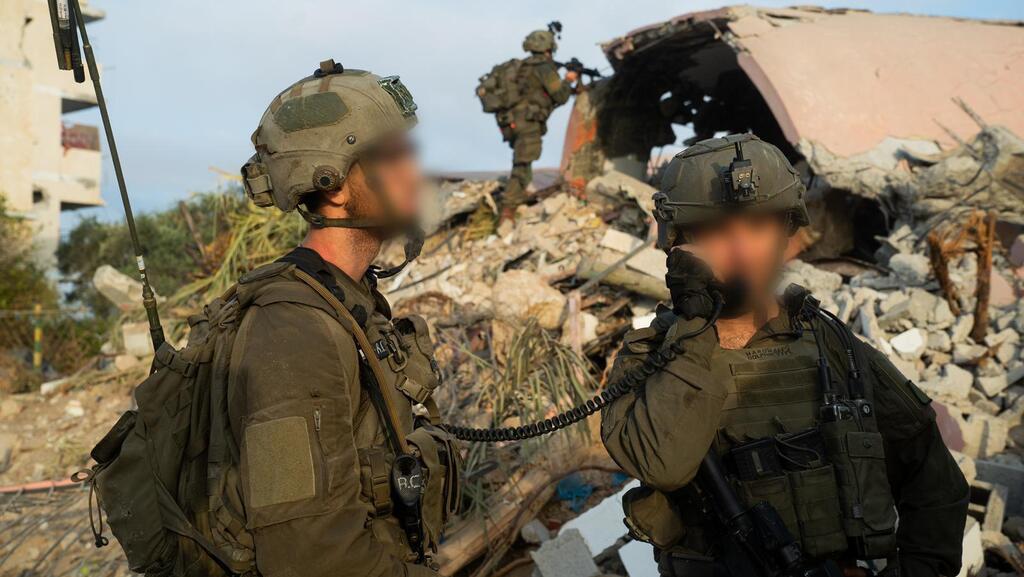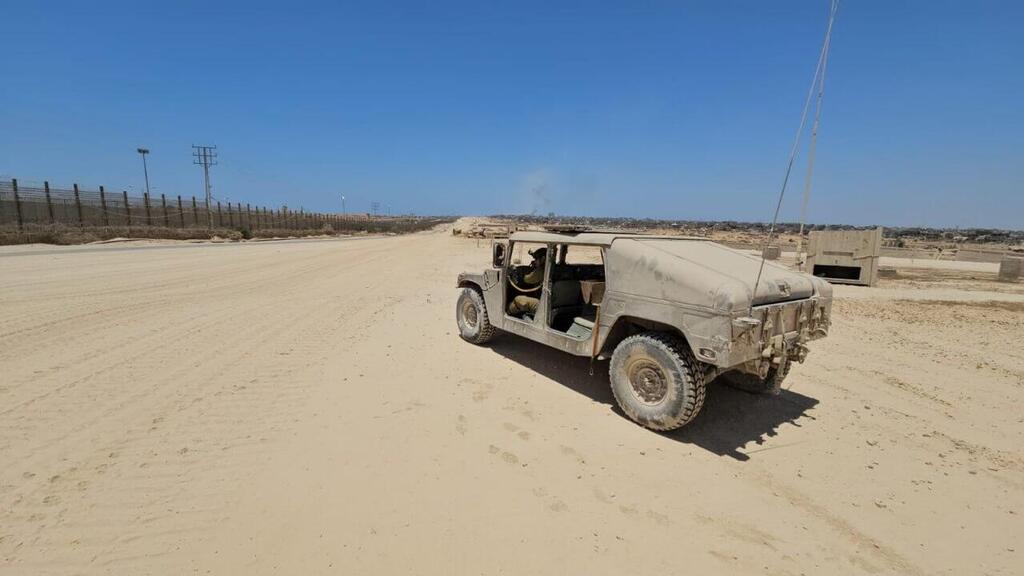A senior Egyptian official who’s closely following the cease-fire and hostage deal talks in Cairo clarified on Friday in a conversation with Yent, "We won’t agree to an Israeli military presence along the Philadelphi Corridor. This has been our stance from the start of the negotiations, and we have no intention of changing it."
The official, however, added, "I won’t comment on the introduction of Israeli surveillance and monitoring equipment along the route." In other words, the senior official in Cairo refused to clarify whether Egypt intends to silently approve the establishment of electronic devices for Israeli supervision along the route.
3 View gallery


Egyptian President Abdel Fattah El-Sisi, terror tunnel found in the Philadelphi Corridor, Prime Minister Benjamin Netanyahu
(Photo: Saudi Press Agency/Handout / Brendan SMIALOWSKI / AFP, IDF Spokesperson's Unit, REUTERS/Ronen Zvulun)
The official also noted that CIA Director William Burns, who was present at the negotiations in Cairo alongside Egyptian Intelligence Chief Abbas Kamel, Mossad Director David Barnea and Shin Bet Director Ronen Bar, strongly advised the parties against leaking details that could, according to him, reach the media. Burns even praised the Egyptian media for avoiding "prying" into the negotiations.
The Egyptian official emphasized the U.S. is making optimistic statements despite the significant challenges remaining before a deal is secure.
"The Americans intend to maintain a businesslike, perhaps even positive, atmosphere between senior officials from Egypt and Israel,” the official said. ”But Netanyahu’s influence is felt in the negotiation room; we know he receives real-time updates from the talks."
After Israel’s Security Cabinet decided the IDF would remain on the Philadelphi Route on Thursday, the Egyptian official said that Egyptian security forces had "sealed most of the tunnels under the buffer zone with water and flooded them with concrete to prevent the smuggling of weapons, goods and spare parts."
"I’m aware of the Israeli complaints saying not all the tunnels have been sealed, hence the need for an Israeli military presence in the area. This is unacceptable to Egypt, just as it would be unacceptable for Israel to have a presence at the Rafah Crossing," the senior official said.
Considering the Egyptian official's statements, senior figures in Cairo, who unanimously reject any Israeli presence along the Philadelphi Route and at the Rafah Crossing, don’t mention who could control the Palestinian side of these two strategic sites in an alternative.
"It’s certainly permissible to consider the possibility of an Arab and international force in the area," the Egyptian official explained. "No one is currently talking about Hamas’ presence there, but rather that of an Arab force composed of Palestinian authorities, Arab forces from Jordan and Arab Gulf states, perhaps including Saudi Arabia and European observers joining them."
In any case, the official stressed Egypt's leadership firmly rejects the persistent Israeli effort and wouldn’t agree to IDF soldiers or any Israeli authority arriving with "boots on the ground," along the Philadelphi Corridor.
The Egyptian official, who talked on condition of anonymity, clarified he agreed to speak with Ynet "only to sharpen the Egyptian stance for the Israeli public, including lawmakers."




